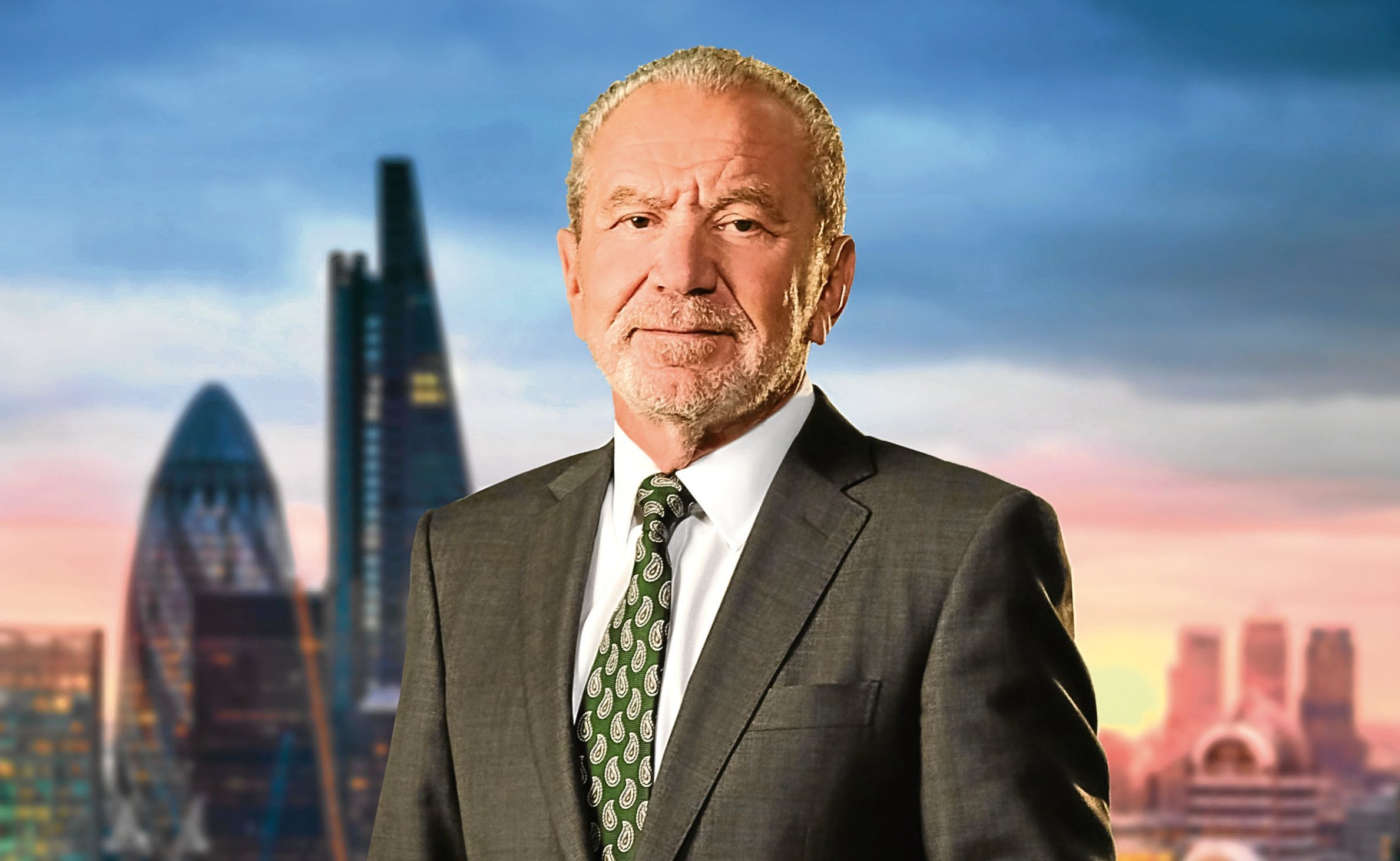
SUITED and booted in the boardroom, a formidable business mogul, uttering that iconic line: “You’re fired!”. That’s the popular image of Lord Alan Sugar.
And when I first meet him, looking at his body language alone, he lives up to those expectations.
He’s leaning right back on the sofa, his arms are crossed tightly across his chest, and he looks at me across the table — almost impatiently.
I’m half expecting him to ask to see my CV, Apprentice-style.
But the London-born entrepreneur, who set up his first business — electronics company Amstrad — aged 21, also cracks more smiles than anticipated throughout our chat.
And he’s especially animated when talking about mentoring the winners of past series of The Apprentice, currently on its 13th series.
So, off-screen, is the intimidating Lord Sugar actually a bit of a softie at heart?
“Oh, real softie, absolutely — you should ask my wife,” he quips with a laugh.
“That’s one of the problems of The Apprentice — people are a little reluctant to talk to me because it comes across as I’m a bit abrupt and blunt.
“But that’s not really me in real life,” adds Lord Sugar, who married wife Ann in 1968, and has three children and seven grandchildren.
As a business programme at heart, Lord Sugar knows there’s a place for his serious side on the show.
“It’s a good balance, that’s why the programme is so successful,” he explains.
“There’s an underlying business message in there which has really inspired youngsters from the age of 13 upwards to go into business.”
Each week in The Apprentice, the pool of candidates are split into two teams to tackle a business task set by Lord Sugar and his two aides, Baroness Karren Brady and Claude Littner.
Whichever group loses the task endures a grilling from Lord Sugar in the boardroom, and then at least one person is fired, whittling the contestants down from 18 to the last one standing.
Interview week sees the final candidates’ CVs and business plans torn apart, before the final episode sees the winner given £250,000 investment from Lord Sugar in their business.
“As you’ve seen with other programmes, when people start to try and tinker with things, it ends up as disastrous,” he says when asked if he feels pressure to keep the show fresh.
Slipping into “Apprentice mode”, he adds: “If it ain’t broke, you don’t fix it.”
The 13th series has involved tasks such as creating a range of burgers and planning a premium corporate experience at a sports event, all of which inevitably leads to tense confrontations between team members and many larger than life contestants.
Big personalities who have starred on the show in the past have gone on to forge reality TV careers, with people like Katie Hopkins and Luisa Zissman entering the Celebrity Big Brother House.
But Lord Sugar maintains the casting process hasn’t changed, and that people don’t apply to the show for fame — they are business people.
“What happens is they get withdrawal symptoms after being seen on TV and they get head-hunted by the producers of these other programmes,” he explains.
“Those producers know they’re just going to use them, for one series, and then just throw them away.
“It’s just human nature isn’t it — ‘I wanna be back on the television!’
“So that’s what they go ahead and do.”
I’m curious as to how the formidable Lord Sugar, who has amassed over five million followers on Twitter, deals with being in the public eye himself.
And not for the first time in our chat, I’m surprised by an answer he gives — when he says he is mindful of what he shares with the world.
“When I first went on social media I was very conscious of the fact that some of, what I would call, high-profile or semi-high-profile people that had got themselves into trouble, because every time I tweet a message, the whole world of media looks at what I say,” he admits.
“So I’m very conscious of putting out things that are politically correct, for example, and if I’ve got to say something strongly, I will.
“But I’m very conscious of what I put out — I have to be.”
What about the way he comes across to viewers as The Apprentice boss?
“It doesn’t worry me,” he affirms.
“It worries some of my family, though.
“There’s 140 hours of programming, some of it’s quite fun, so you see the funny side of things, the humorous side, the softer side of me.
“But, of course, that doesn’t put bums on seats as far as the TV producers are concerned.”
n The Apprentice airs on BBC1 every Wednesday or you can catch up on BBC iPlayer.

Enjoy the convenience of having The Sunday Post delivered as a digital ePaper straight to your smartphone, tablet or computer.
Subscribe for only £5.49 a month and enjoy all the benefits of the printed paper as a digital replica.
Subscribe